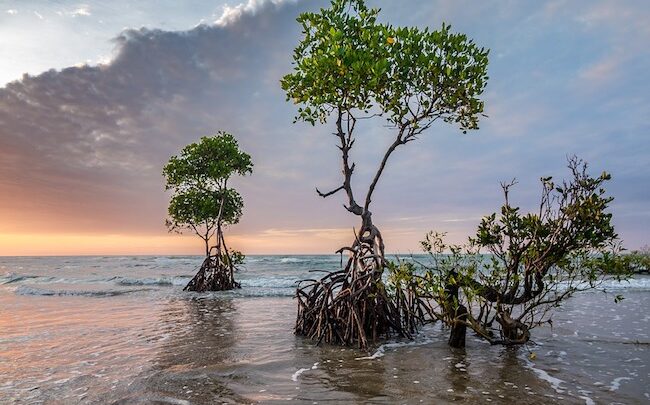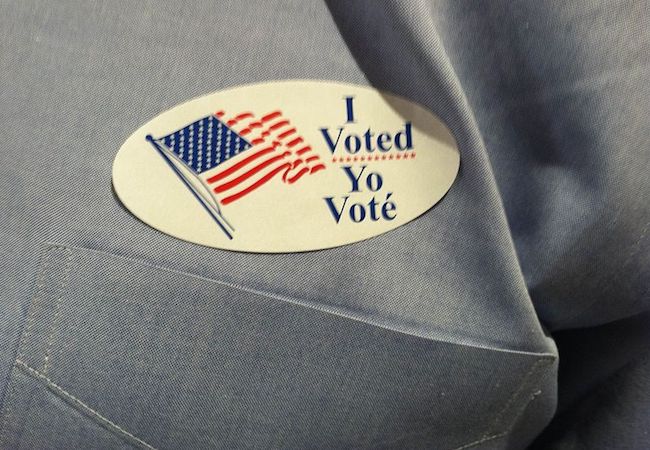The Democrats need to have a climate-only TV debate. For Americans and for the rest of us
A series of global summits mean the months between now and November 2020 will be crucial to the future of climate change.

By Simone Tagliapietra
When Catholics are busy choosing a new Pope the whole world watches Italy and when Americans are busy choosing a new president, the whole of Italy watches America. We used to watch for entertainment, but these days we watch because we’re scared.
For American voters, climate change now represents a top-tier issue — and Democratic candidates have accordingly put on it increasing emphasis. After all, global warming can well turn out to be a winning issue for them, considering that — according to a recent Washington Post-ABC News poll— only 29 percent of Americans approve Mr. Trump’s position on climate change, while 62 percent disapprove.
Many of them would have been disappointed that during the June Democratic presidential debates global warming only got 15 minutes out of four hours. It is now high time for the Democrats to have an official, full-fledged, debate on climate change.
A presidential campaign strongly focused on climate change would have positive implications beyond the U.S., and beyond the election night of November 3, 2020. The months of the presidential race indeed correspond to the months of a much broader global race: the one to save the planet from climate change.
Science is clear: limiting global warming to 1.5 degrees Celsius is the only way to protect the world from the more dramatic impacts of climate change on natural and human systems. To remain within this boundary, global CO2 emissions have to peak in 2020 and then rapidly decline, to reach net-zero in 2050. Urgency is dictated by a well-established fact: due to human activities, global average temperature has already increased to date by approximately 1 degree Celsius above pre-industrial levels.
This is becoming technically and economically possible, as most of the technologies needed to achieve global climate neutrality in 2050 are now available, at ever lower costs. What is needed, as climate change is a global commons problem — where American emissions are a threat to Italians, and Italian emissions are a threat to Americans — is a solid international policy framework capable of unleashing this transformation.
A set of crucial international climate and environmental governance appointments will take place between September 2019 and the end of 2020, turning this period into a defining moment for the global response to the climate crisis — as the American public debates the next occupant of the Oval office.
A Climate Summit convened next September in New York by the UN Secretary General will be pivotal in boosting global climate ambition and accelerate actions to implement the Paris Agreement. This is seen as the place where frontrunners could start to present more stringent pledges, in view of the most important international climate conference since the one that delivered the Paris Agreement in 2015: COP-26, which is due to take place in December 2020, most likely in London.
According to the Paris Agreement, countries must submit new climate pledges every five years, which must represent a progression compared to previous contributions. This is vital because the Paris Agreement is a legal hybrid, blending binding elements of accountability with non-binding emissions targets. In critical ways, it bets on the force of rising norms and ambitions rather than legally binding and effective rules to achieve its aims. At COP-26, countries are due to officially present their new pledges, which will be key in guiding global climate action for the period up to 2025 — i.e., the timeframe in which the world will have to decisively embark into a pathway to reach climate neutrality by 2050.
2020 will also see two additional international environmental governance appointments.
The first will be the UN conference aimed at forging an international legally-binding instrument under the United Nations Convention on the Law of the Sea on the conservation and sustainable use of marine biological diversity of areas beyond national jurisdiction. With this treaty, the UN thus aims at protecting marine life on the high seas, which is also substantially impacted by climate change.
The second will be the UN conference on biodiversity aimed at putting in place a post-2020 framework for global wildlife conservation. This is meant to be a ‘Paris Agreement of biodiversity’ and, as a recent UN report outlined, it is particularly urgent given the rapid degradation of natural habitats worldwide — also due to climate change.
To deliver these historical milestones, the world needs vision and leadership. Civil society, notably through youth movements such as the FridaysForFuture, is playing an important role in fostering a vision on climate, as well as in turning it into a mainstream issue. But countries should do their part, putting in place policies and regulations aimed at getting things done.
With this regard, the U.S. presidential campaign could serve as the world’s most important forum for testing the resolve of those who profess to prioritise our planet’s preservation. The protagonists of this story will also have the opportunity to show that climate change can represent an opportunity to engineer sustainable economic growth and greater investment in technological innovation.
Coming from the largest CO2 historical emitter — America still has around 2.5 times higher emissions per-capita than China, and dwarfs those of my own country, Italy — this would set a powerful political precedent for the whole world.
When American presidential candidates debate, millions of the voters they are seeking to reach are watching, but the rest of the world is watching too. In Italy we do it through our fingers.
Simone Tagliapietra joined Bruegel in April 2015. He is Senior Researcher at the Fondazione Eni Enrico Mattei in Milan and Visiting Researcher (Non-residential) at the Istanbul Policy Centre at Sabanci University in Istanbul. He is an expert in international energy issues, with a record of several publications covering the international natural gas markets, the EU energy policy and the Euro-Mediterranean energy relations, with a particular focus on Turkey.




